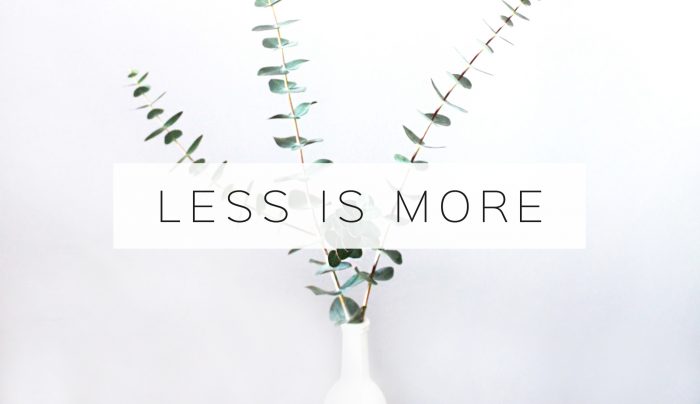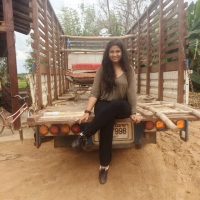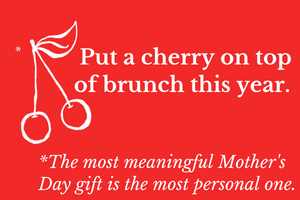Learning to live with lesser things and more experiences was an important life decision that I made but it wasn’t all that easy. It was a slow process where I often reconsidered the choice to go ‘minimal’ but at the end of the day, the resolution was worth it. While a lot contending voices exist around what actually ‘Minimalism’ is – is it truly a beneficial practice or does deliberately depriving oneself of comforts is an attempt to glorify poverty? Well, that debate has to be kept for another day but the one thing that is certain is that minimalism is primarily keeping ‘things’ to a limited to be able to focus on to non-things (intangibles in life). Keeping away from the race of having more and more, minimalism is a medium through which one can seek contentment without things. This is not to say that things do not matter in their entirety but life shouldn’t just be about a quest of accumulating more and more things. I recall the priceless words of Lope De Vega, a Spanish novelist over here – “With a few flowers in my garden, half a dozen pictures, and some books, I live without envy.”
There is certainly no end to ‘how much’ we can have but how do we know where to rightfully stop? While the never being able to clear the clutter off my cupboard was a sign that something was wrong with my approach, it wasn’t until I took a solo trip that I realized that maybe having fewer things would ease life for me and it did, way more than I expected it to.
Back in 2015, when I garnered the courage to head to the Himalayas by myself, for the very first time, little did I know that it’ll kickstart my quest to understand what minimalism really is. The relationship between traveling and minimalism is very interesting. It’s both pragmatic and philosophical. After all which wandering soul dreams of wandering with suitcases full of different shades of t-shirts, cute bags and a billion different kind of lipsticks that are impossible to carry around? From valuing experiences and conversations more than things and ‘likes’ to depending less on tangibles and more on myself, this is how my journey inspired me to adopt minimalism.
I started valuing experiences more than things
When out to travel alone, for practical and financial reasons, carrying around a lot of luggage was not something I could do very easily so eventually I decided to pack minimally and reign in my desire to shop everything I found ‘cute’. So instead of sporting of a ‘I love Thailand’ Tshirt as soon as I landed in Thailand, I decided to get around in the country, explore its nook and corners and actually give myself an opportunity to love it than buy a t-shirt to sport first. Getting the drift?
I started earning to live instead of living to earn
With every limit increase in my credit card, the capability to buy more eventually led to the desire of buying more and before I knew I wanted things way more than I needed them. I was buying whatever the credit card companies wanted me too – 1+1 Pizzas, weight-loss powders, statement perfumes, subscriptions of more online streams that I could humanely watch and more things that I can presently recall. Not only did I accumulate an incorrigible amount of clutter but also could not save up for the travels I really ached to take. Living from pay cheque to pay cheque, paying for things that I did not enjoy as much the advertisements said I’d enjoy, I realized that I what I needed wasn’t more money but the will to not waste what I was earning with my hard work. I found solace in traveling and thus I took conscious efforts to cut back on expenses beyond my immediate needs and save up for what I wanted to do. This really helped me learn how to earn for a living and not living to earn.
It taught me how to declutter
Buying things not only drained my money but also clogged the physical space in my house and my mental space. That’s the thing about ‘stuff’ we keep on accumulating, it needs attention and care and if that doesn’t happen, it takes just one outing for the well stacked diverse wardrobe to become a ‘clutter’. This the very clutter which spells doomsday for our lives and also our mental health. And it struck me then that the stuff that we so passionately accumulate, decorate and nurture and spend hours to ‘organize’ is not passive. It wants our time, attention, allegiance.
And with the time and resources that the ‘stuff’ needed, I did not find the energy or the time to plan or even daydream about my trips. There is a very real relationship between increasing clutter and deteriorating mental health and so the decluttering helped me work on my mental health and create the space and enthusiasm needed to travel.
Of course, there are escape trips where you just run away for a while in the hope of healing and coming back with a bang but I wanted a balance. I did not want and neither could afford to live like a hippie, a nomad. I had to do things that I needed to do so that I could do things that I wanted to do (yes, that’s what Denzel W. said in The Great Debaters) and so decluttering helped me focus on more important things, which for me, was traveling.
My ‘attachment’ pattern underwent a transformation
The thing about social rituals is that we develop an attachment to things – be it birthday gifts, anniversary gifts, and countless other such occasions. Traveling solo helped me realise that it was talking to different people, listening about their experiences, having meals and conversations at small eateries, watching a clear night sky with lots of stars, waking up early morning and sharing sleepy glances with strangers were ‘things’ that made me happy and deserved an attachment to than the dress I got last birthday which, sadly, doesn’t even fit. And this is not about being ‘otherworldly’, this is as logical as it can get. Things after things, wants after wants, possessions after possessions – there’s never an end in sight to tangible attachments and that leaves us with little time to cultivate and pursue our interests for the ‘intangibles’.
It helped me become more ‘independent’
The basic premise of traveling ‘solo’ is being independent. From trying to by heart the route on Google Maps to hailing a bus in learned up local words in an entirely new country, going solo instilled in me the spirit of being ‘independent’. I knew I needed to navigate the way around town by myself because the internet wouldn’t be available at all times, I had to get better with sign language because the translation app wouldn’t always come to my rescue.
We tend to get too dependant on things and with more and more inventions, comes the ‘need’ to get it all. First was the camera phone, then there were more photos, then more apps to beautify those photos, then the need for more storage to keep those photos, then power bank to keep the battery running for hours, then the phone holder to stare into it the entire night – it is more like an endless toil and dependence on things. Traveling around by myself forced me to keep fewer things that I could handle independently. Traveling solo also made me responsible for my own safety, for my own comfort and I was my only constant companion. This need to be independent thus drew me closer to ‘minimalism’. Less dependant on things and more dependence on myself.
Living with locals taught me how “Less Is More”
Often critics of minimalism call it glorifying living in poverty but it’s not that. ‘Minimalism is not about living in poverty. It’s about living with only what makes you happy, both materialistically and otherwise- and creating an uncluttered home and mental space that allows you to be your best self. There is a great need for the introduction of new values in our society, where bigger is not necessarily better, where slower can be faster, and where less can be more.’ – Gaylord Nelson
These words of Gaylord Nelson came to life for me during one of my solo escapades where I spent two weeks volunteering for elephants in Sri Lanka. I got the opportunity to live with local Mahouts and farmers and learned about their sustainable ways of living. How they lived in harmony with nature, how their ways of living did not mean accumulating wealth but living each day meaningfully. The villagers made paper out of elephant poo, the agricultural residual was the elephant feed, and water, especially fresh water of the saline rich water of the island country was used judicially and not an ounce was wasted but was utilized to bathe the elephants. It appeared that people living close to nature were not in a war with nature for more and more comfort but respected it and it, in turn, respected them.







Read 0 comments and reply